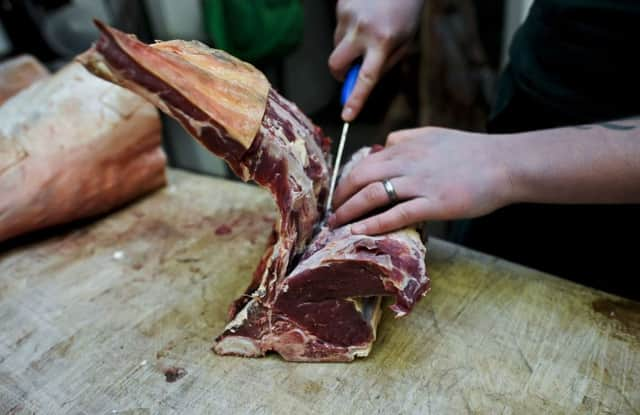More than 300 food hygiene warnings handed out to Hartlepool restaurants, caterers and factories by inspectors


Data from the Food Standards Agency shows the results of food hygiene intervention inspections in the local authority, over the 12 months to April.
The businesses inspected are mostly restaurants, but include any establishment which handles unpacked food including farms, manufacturers and catering companies.
Advertisement
Hide AdAdvertisement
Hide AdInspectors assessed 749 businesses and handed out 312 written warnings in Hartlepool.
Any breach of food hygiene regulations can lead to a written warning.
The breaches include problems with cleanliness, training of staff, record keeping, washing facilities and separation of cooked and raw foods.
Advertisement
Hide AdAdvertisement
Hide AdOfficials consider the seriousness of the case, as well as the co-operation of the business, before deciding on what action to take.
As well as the written warnings, in Hartlepool there were two hygiene improvement notices and one voluntary closure.
No businesses in Hartlepool were categorised as high risk, which would mean they would need to be inspected again within six months.
This rating is different from the 0 to 5 score that restaurants and takeaways display in their windows, as it is an indicator of when officials need to assess the business again.
Advertisement
Hide AdAdvertisement
Hide AdA business which gets a high risk rating is “highly likely” to have breached food hygiene regulations, according to the FSA.
However it could also be because of its trade, such as large scale manufacturers with lots of customers or businesses that carry out specialist procedures.
In total there were more than 150,000 written warnings handed out in England, Wales and Northern Ireland in 2017-18, and 267 successful prosecutions. Scotland collects its data separately.
Advertisement
Hide AdAdvertisement
Hide AdNina Purcell, director of Regulatory Delivery at the FSA, said: “It’s encouraging that local authorities have made improvements in the percentage of interventions achieved and are continuing to target their activities at food businesses where food safety risks are the highest or where food fraud is more likely.”
An FSA spokeswoman encouraged people who see bad food hygiene to report it to the council.
In a statement, she said: “You can report poor hygiene practices in a restaurant, store or other food outlet to the business’s local authority at www.food.gov.uk/contact/consumers/report-problem/report-poor-hygiene-practices.”